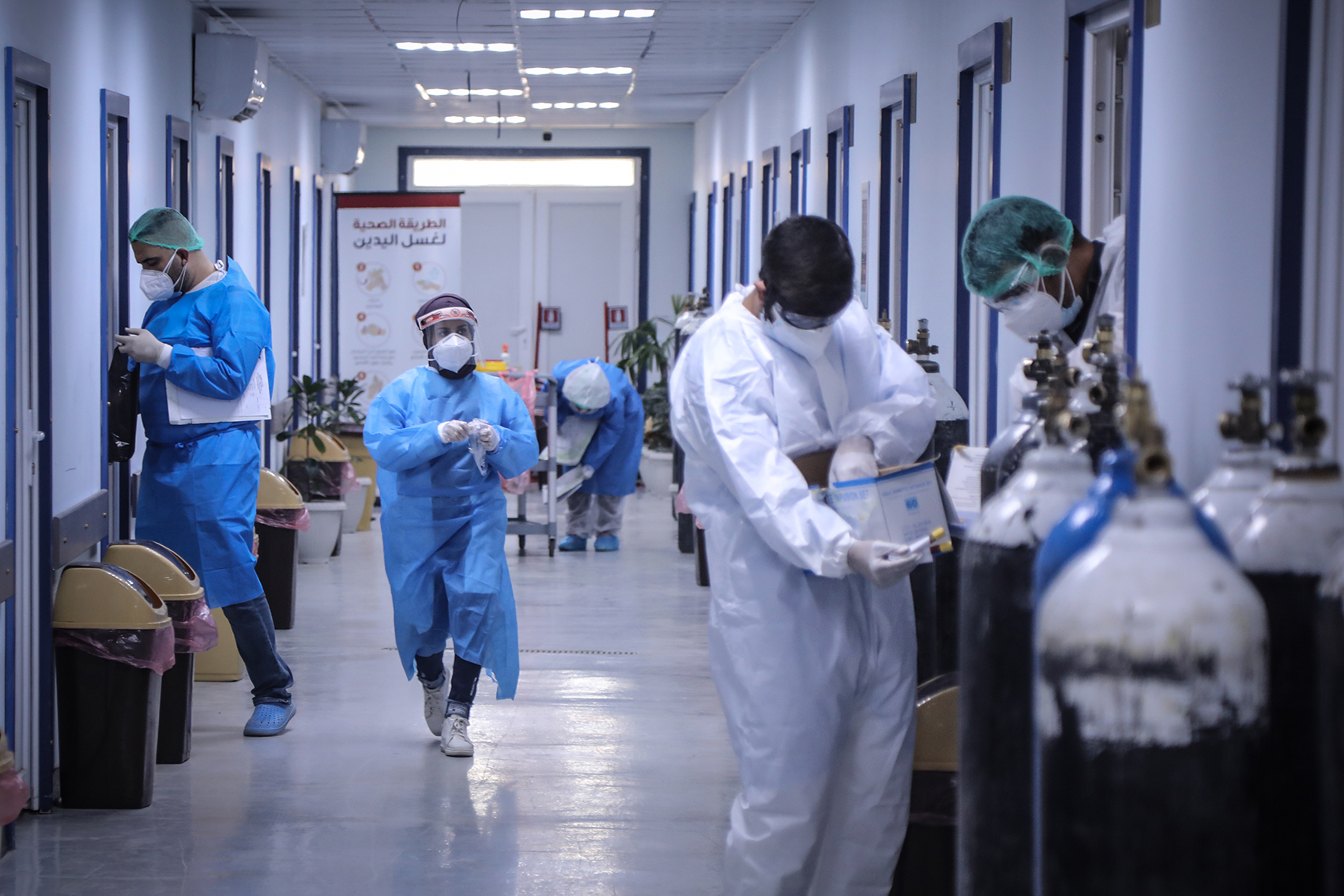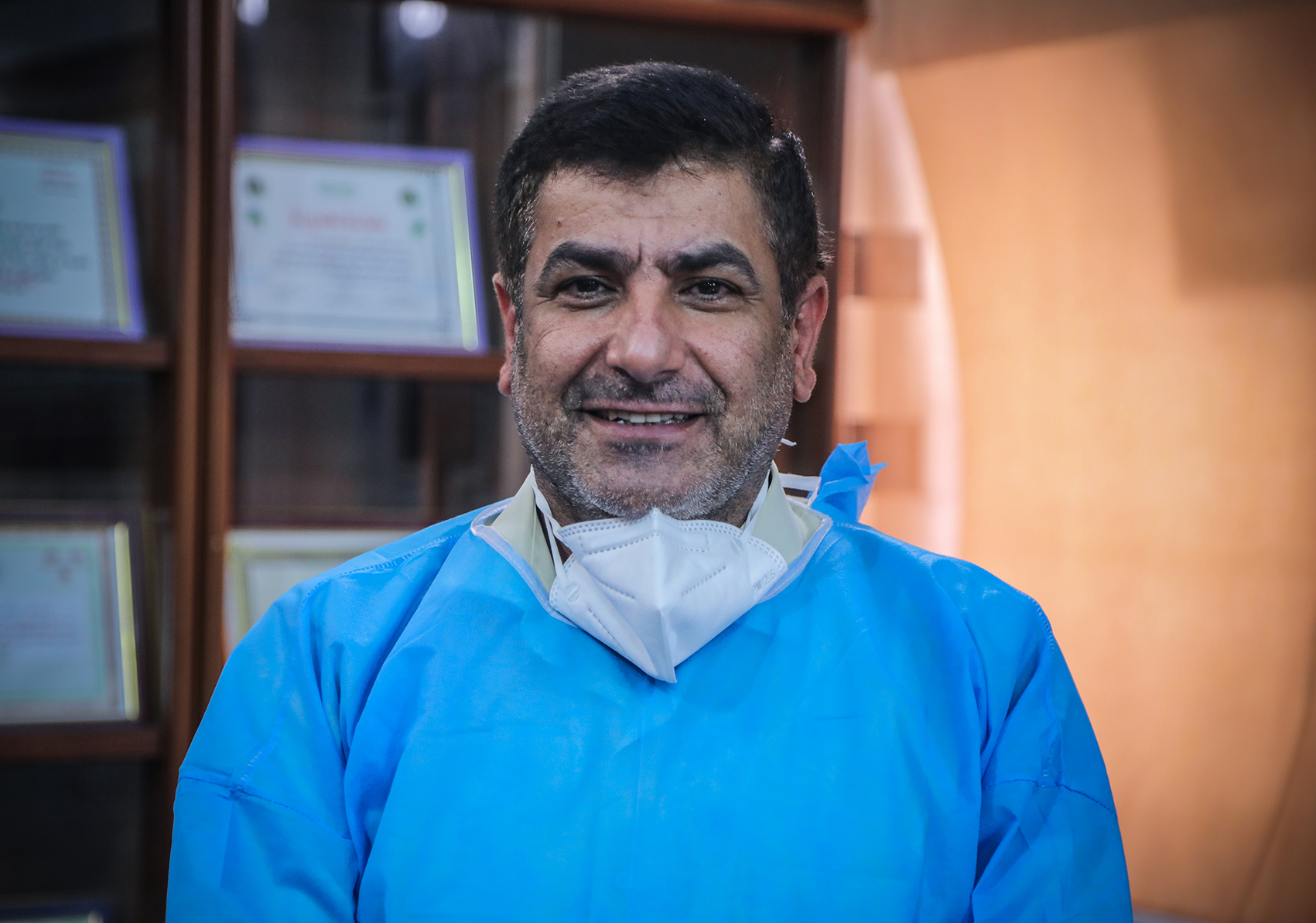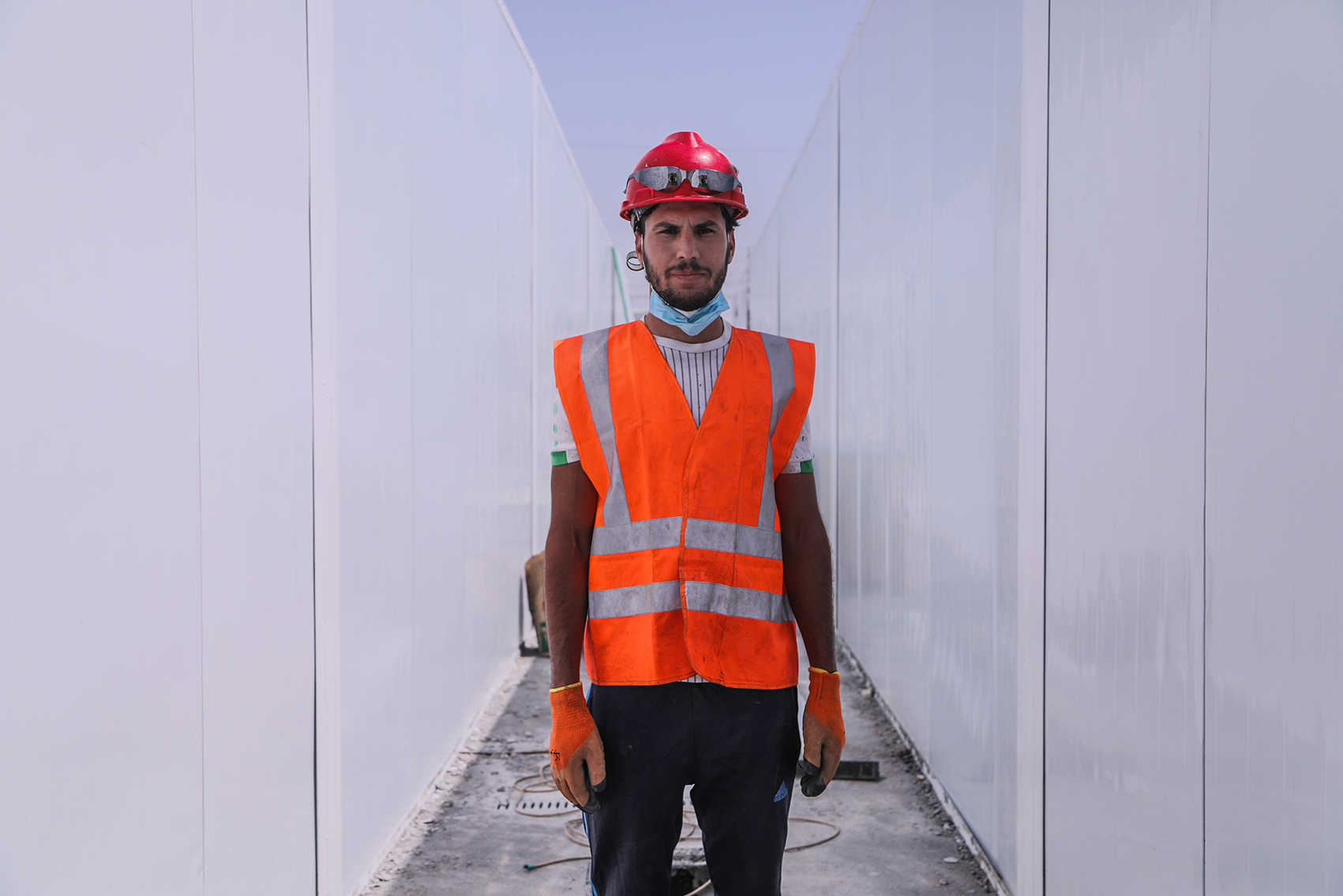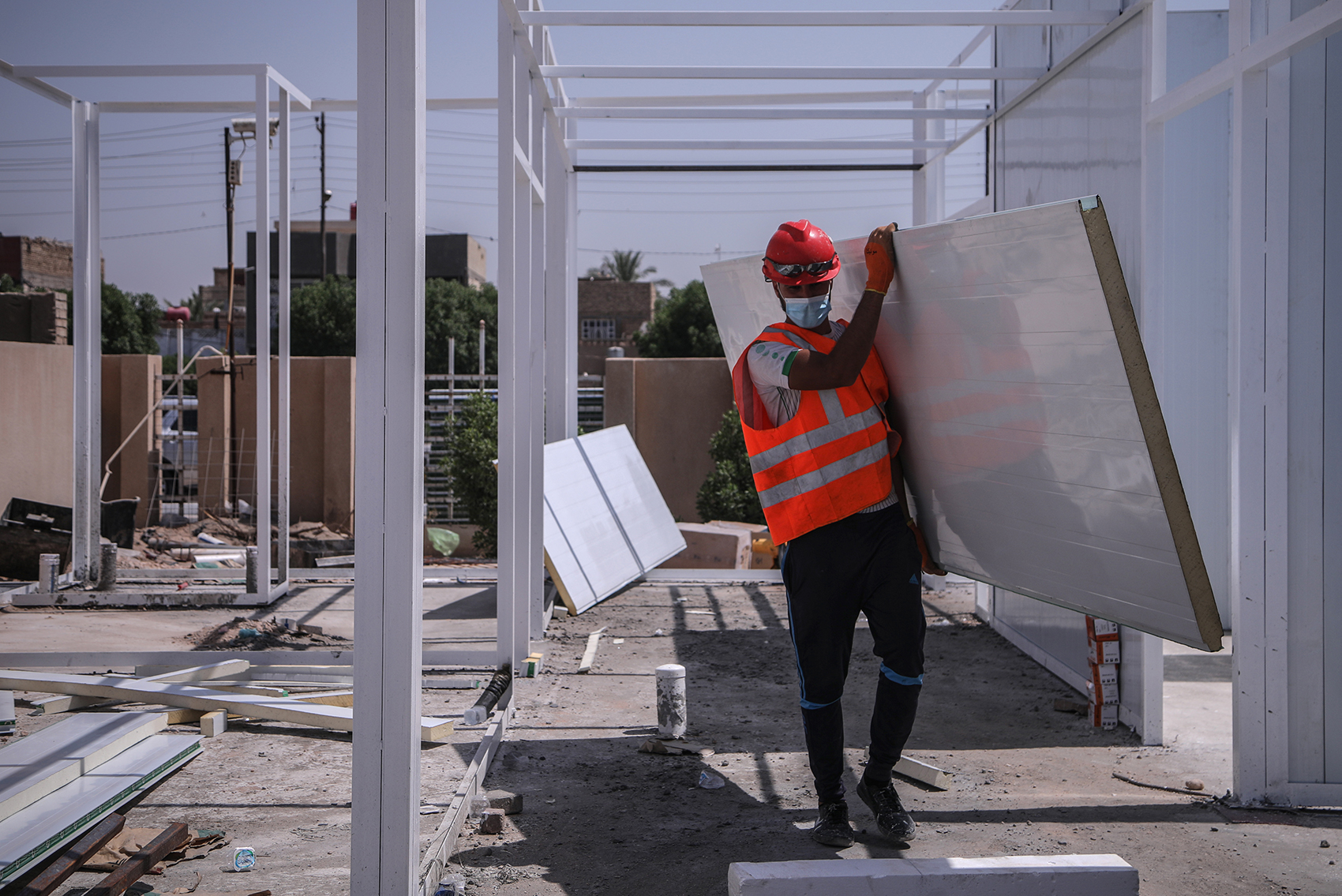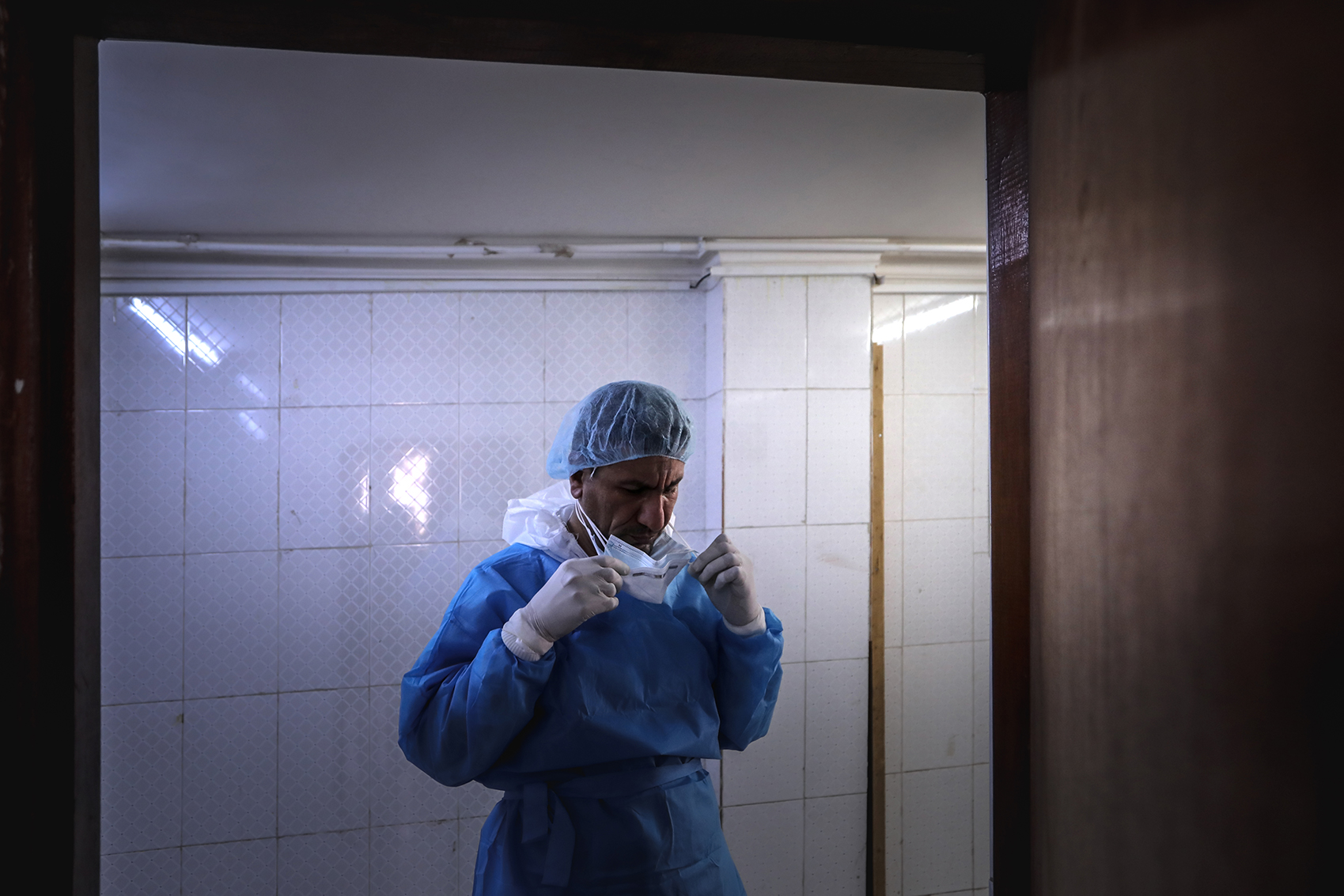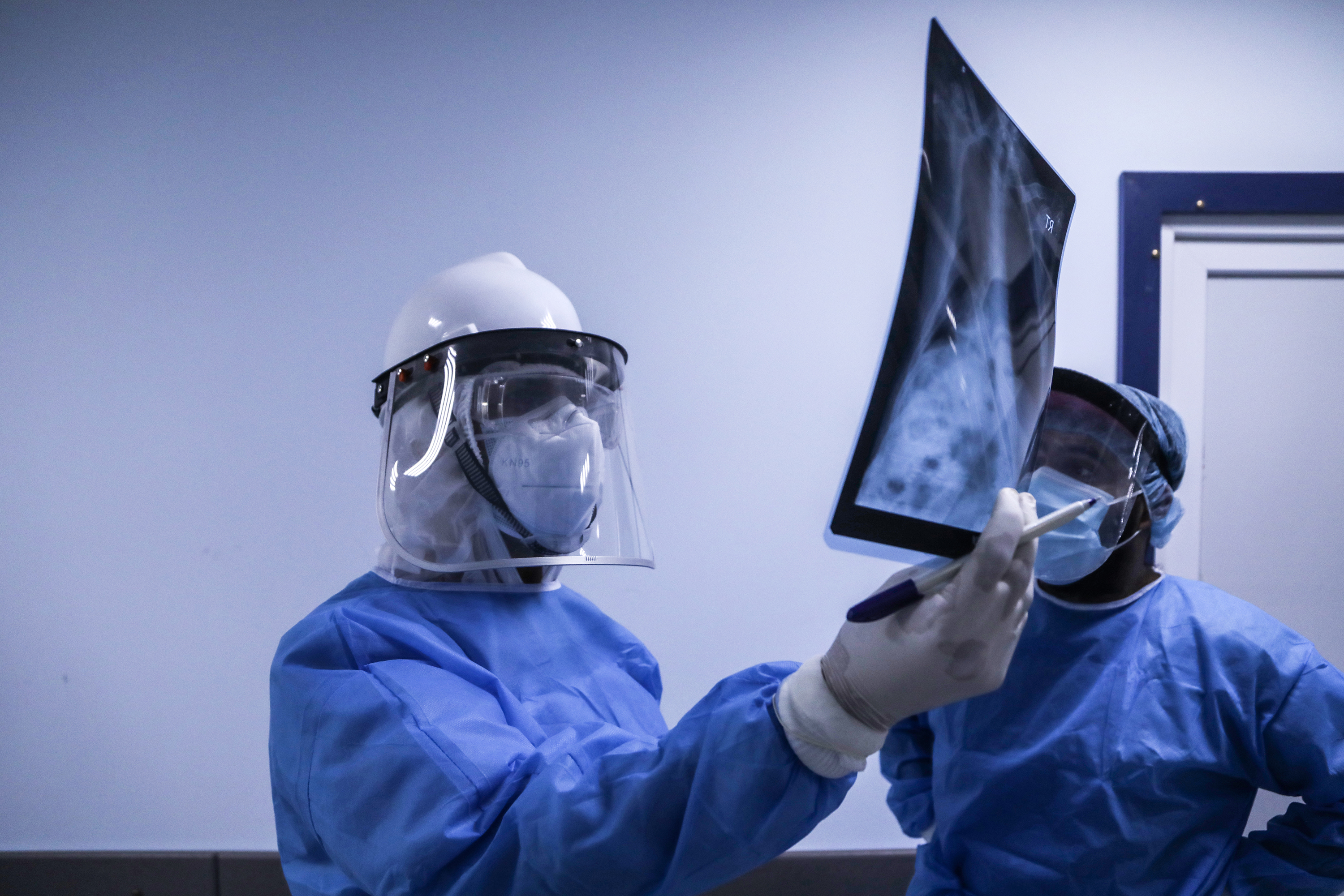Zainab Faris Omran, 21 works as a nurse in Al-Hussein Hospital in Karbala.
“COVID-19 has had an impact in all aspects of life – not just for healthcare,” explains Zainab, 21, a nurse at the Al-Hussein Hospital in Karbala. “More people are suffering in poverty due to the pandemic, and the added pressure is causing problems in the family home too,” she adds.
Since the pandemic reached Iraq in mid-March, the number of people contracting the virus each day has steadily increased – with the total now reported at over 175,000 cases nationwide. Coupled with already high unemployment rates, the impact of the pandemic on the social and economic stability of Iraq is critical.
But whilst the big picture sparks worry and concern, there is still hope. Each day, Iraqi doctors, nurses, construction workers, restaurant staff and cleaners – and many more – wake up, prepare for their day and head in to work. These people are on the frontline of the fight against COVID-19, providing care, a warm meal, a clean workspace or a new isolation unit.
Zainab Faris Omran, 21, has been a nurse at Al-Hussein Hospital in Karbala for 3 years.
“Coronavirus is not limited to a particular group of society but affects all aspects of society and directly impacts the services people rely on – whether medical or economic,” says Dr. Sabah, Director or Al-Hussein Hospital in Karbala.
“My hope for Iraq, once the pandemic has subsided, is that we can learn from this,” he explains. “In terms of the economy, medical infrastructure, staff and staff training, and medical supplies and equipment…all should be reviewed.” Dr. Sabah has worked in Al-Hussein Hospital since 2004, both in hospital administration and in general and laparoscopic surgery. “We should consider the weaknesses and strengths of our healthcare systems in Iraq and reflect on our experience during the pandemic.”
Dr. Sabah Karim Hamzah, 49 years old, Director of Imam Al-Hussein Hospital in Karbala.
Dr. Sabah is responsible for the administration of Al-Hussein Hospital in Karbala.
Sajjad, 24, a former restaurant worker and now construction worker employed to help build 20 isolation units at the site of Al-Hussein Hospital in Karbala, knows well the responsibility of working to support the national response to COVID-19.
“I’ve been working here for almost two weeks and I really enjoy it – I particularly enjoy welding,” he explains. “I feel a sense of achievement when I am consistent, perform well and complete high quality work.”
Sajjad has big hopes for Iraq once the pandemic subsides, “Once this period passes, I hope we can be stronger – overcoming bigger issues and becoming a more resilient society.”
Sajjad Abdul-Rasoul, 24, is working at Al-Hussein Hospital, where construction of 20 isolation units for people who have contracted Coronavirus is underway.
Sajjad works in the initial phases of construction at Al-Hussein Hospital’s isolation units.
Dr. Jabbar, 43, an internist at the Al-Hussein Hospital in Karbala, has seen a shift in his day-to-day work as the COVID-19 pandemic continues to impact individuals and communities across Iraq. “Our work has changed 180 degrees,” he says. “All medical staff and supplies are dedicated to the COVID-19 response, so the intake of patients for other conditions has decreased.”
Dr. Jabbar, much like other frontline workers, has had to adapt to the changing nature of his work in medicine, and the impact it has on his life at home. “At home, I cannot hug and kiss my family. As soon as I return, I shower. I sleep in a separate room to my wife and kids. This way I can keep them safe, whilst also continuing my work to help fight back against COVID-19.”
For these frontline workers, the work is tough, but the reward for helping those in need, is invaluable. “The best thing about my job is providing complete care for these patients – medical and emotional,” says Dr. Jabbar.
Dr. Jabbar Fadhil Mahdi, 43 years old, works at Al-Hussein Hospital in Karbala.
Dr. Jabbar inspects the chest X-rays of a patient.
UNDP is establishing the isolation unit at King Hussein Hospital in partnership with the Government of Iraq. The project has been generously funded by the United States Agency for International Development (USAID).
UNDP and its donors remain committed to support Iraq in its fight against the COVID-19 pandemic. With immense gratitude to all frontline workers – from doctors to grocery store employees – we too maintain hope for the recovery of Iraq and the development of a more resilient nation.
About UNDP Iraq’s COVID-19 response
Since March 2020, UNDP has worked alongside the Government of Iraq and the international community on combatting Coronavirus in Iraq. Measures under UNDP Iraq’s response package include increasing the testing capacity of laboratories, providing personal protective equipment to healthcare workers, establishing isolation wards, and undertaking assessments to establish post-COVID-19 recovery strategies. Focusing on the most vulnerable communities in Iraq, activities will be rolled out in 13 facilities selected by local authorities in the underserved areas of Anbar, Dhi Qar, Diyala, Dohuk, Babil, Basra, Karbala, Karbala, Najaf, Misan, Ninewa and Salah Al-Din.
UNDP Iraq’s COVID-19 response package is being implemented under the umbrella of UNDP’s stabilization programme.

 Locations
Locations
